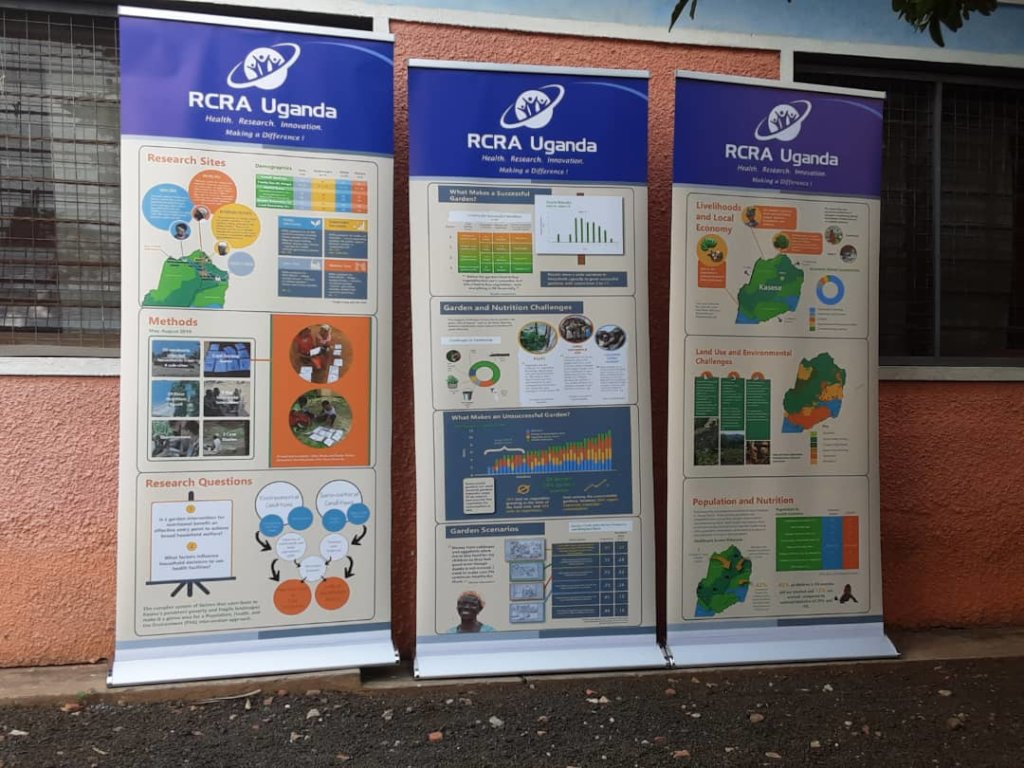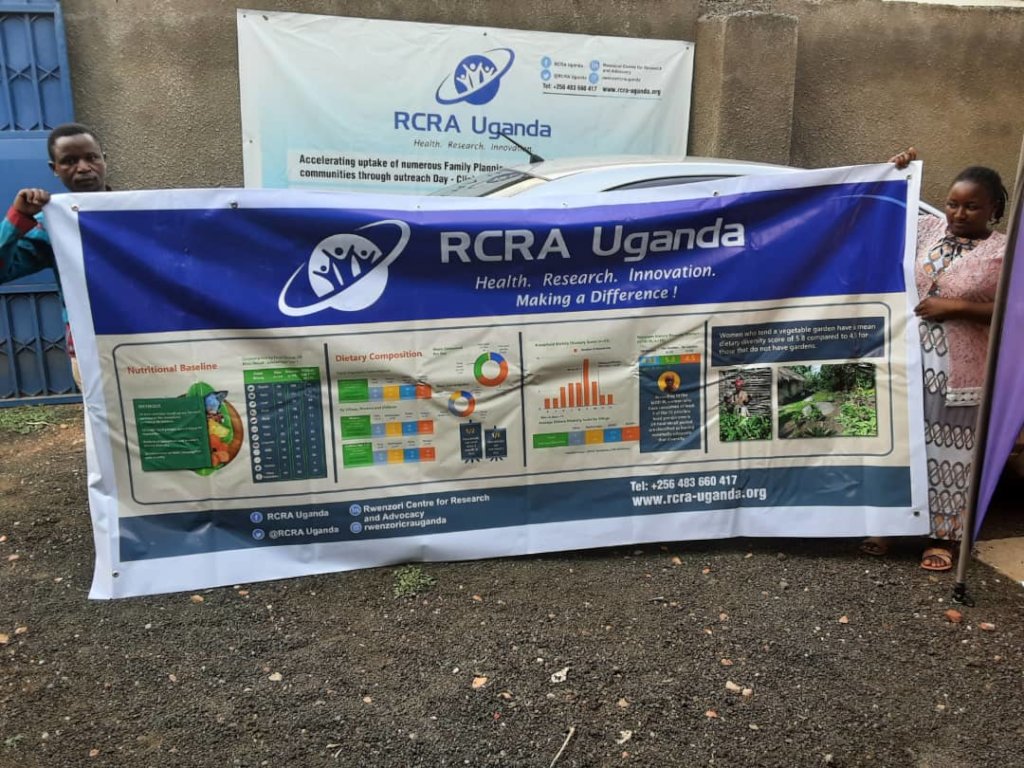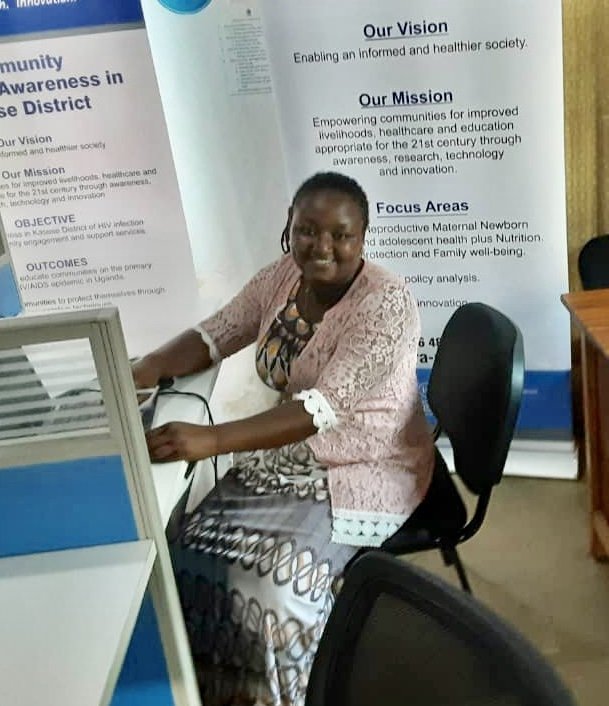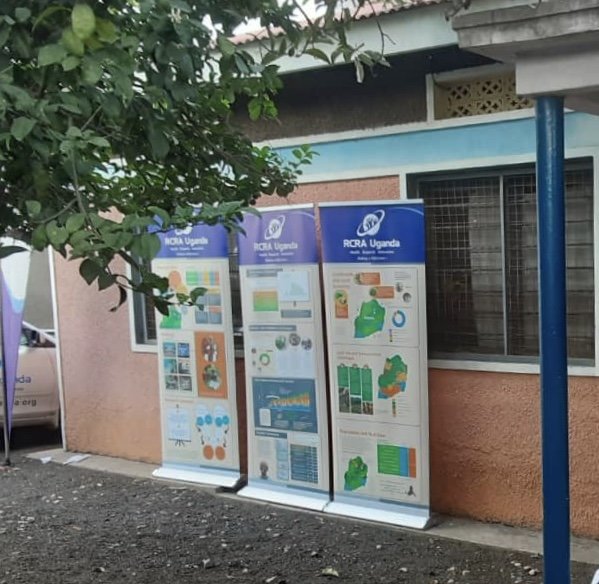By Jostas Mwebembezi and Robin Marsh | RCRA Executive Director (JM), Project Advisor (RM)
Progress Report, January 10, 2021
Background
RCRA in partnership with GlobalGiving is implementing the project “1,000 Women’s Gardens for Health and Nutrition’’ in Kasese district, Uganda, using a ‘phased approach’ model. The ‘phased approach’, starts with 100 home gardens and 5 community gardens in four sub-counties during the first six months, expanding to the next set of 100 gardens as the first group ‘graduates’ from an integrated set of garden, health and educational supports and activities (home ‘action plan’). Within three years, the project will reach its goal of 1,000 home gardens and 20 community gardens established and thriving.
Completed Activities
"Doreen was the only woman applicant for the job who was shortlisted. She graduated in Land Use Planning and Management from prestigious Kabale University, and, although we were expecting to hire someone with an Agronomy or Horticulture degree, it became clear that Doreen's understanding of land access issues would be very useful for helping women to overcome this barrier. Also, Doreen had four years of hands-on experiencing helping poor women to establish gardens, including in refugee camps with very limited resources. She emphasized the nutritional and income benefits for women, especially single mothers. And to top it all off, she has a license to drive motorcycles and feels perfectly comfortable using this means of transport to cover the hilly landscapes of Kasese moving from village to village. We felt fortunate to have found the perfect candidate!" RCRA staff and Senior Technical Advisor
Technical Assistance Model
The technical assistance model employs a combined strategy of ‘model gardeners’, demonstration sites for regular trainings, accessible community gardens that build on established women’s groups, individual hands-on technical support to all participating gardeners, regular monitoring, use of mobile technology to report acute problems, and use of qualified student interns from the School of Agriculture and Environment, Mountains of the Moon University (MMU). The RCRA Agricultural/Gardener Officer will lead this effort, with an assistant, together with the MMU interns and other support as needed.
Criteria for Selection of Community gardens:
Criteria for Selection of Home Gardens:
Agriculture Officer provides training on core garden topics at community and home garden sites.
All the core modules/topics in vegetable production, nutrition and marketing shall be discussed and demonstrated in multiple sites (“model” gardens) for 100 home gardeners and 5 community gardens, supported by qualified MMU summer interns (School of Agriculture and Environment).
“Model” gardeners – demonstrations for neighbors.
In this, women in a household will be taken up as a host farmer for the kitchen garden, and the neighboring women can always converge to her learning plot for observation and training. They will go back to their respective households to duplicate what they have learnt in their own kitchen gardens.
RCRA Agriculture/Garden Officer individualized support plus monitoring.
All participating women gardeners will receive initial individualized support from the RCRA Ag Officer, to establish or strengthen their kitchen gardens, estimating 2 to 3 gardens per day.
Use of mobile technology to request support- SMS support/ GIS also to map our gardens.
The GPS of each kitchen garden for every household will be taken. In addition, putting up some signboards on every kitchen garden (requirement for ‘model households’) can also increase the visibility of the kind of work done in a particular area of operation, for instance, the crops grown, the botanical pesticides used, type and quantity of compost.
Upcoming Activities: We are excited about the households enrollment exercise, supporting selected households to establish and care for the nursery beds, and households preparing the land for home/kitchen gardens with technical support from the Agriculture Officer and her assistant. At the same time, RCRA and allies will continue outreach to individual donors through GlobalGiving and writing grants to foundations funding nutrition, food security and women’s empowerment programs with the goal of raising $50,000 in 2021.
Links:
Project reports on GlobalGiving are posted directly to globalgiving.org by Project Leaders as they are completed, generally every 3-4 months. To protect the integrity of these documents, GlobalGiving does not alter them; therefore you may find some language or formatting issues.
If you donate to this project or have donated to this project, you can receive an email when this project posts a report. You can also subscribe for reports without donating.
Support this important cause by creating a personalized fundraising page.
Start a Fundraiser


